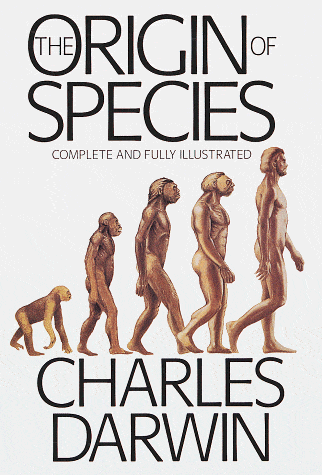If death is thought of as a natural part of the life cycle, why not burial as well? That's the approach being taken by a Marin County cemetery.
{mp3remote}http://media.krcb.org/audio/nbr/5-21-09.mp3{/mp3remote} The view from the hilltop at Fernwood Cemetery, with the historic gravesite area in the foreground. The newer, natural burial area is downslope and to the left. While the details of natural burial are certainly non-tradition, manager Kathy Curry says the funeral or memorial services accompanying those burials can be whatever the deceased of their family want them to be.
The view from the hilltop at Fernwood Cemetery, with the historic gravesite area in the foreground. The newer, natural burial area is downslope and to the left. While the details of natural burial are certainly non-tradition, manager Kathy Curry says the funeral or memorial services accompanying those burials can be whatever the deceased of their family want them to be.
For those who are comfortable with the concept of natural burial, Fernwood Cemetery manager Kathy Curry adds that it can be significantly less expensive, too.
{mp3remote}http://media.krcb.org/audio/nbr/deadcost.mp3{/mp3remote}
You can read a short history of Fernwood Cemetery here, and locate it on the map below.

Belated enforcement of an African student's expired visa, more than 20 years later, is now threatening to tear apart a Santa Rosa family.
{mp3remote}http://media.krcb.org/audio/nbr/5-21-09.mp3{/mp3remote}
There will be a benefit concert, featuring many of Okili's musical friends and supporters, Friday night, May 22 at the Sebastopol Community Center, to raise money for his legal defense (more details below). Donations can also be made directly here. 
It's been a full month since Okili was taken away from his home and family including his son, Olembe, who is now 17. During that time,his wife, Sabrina Krauss, has managed only limited telephone contact with him.
{mp3remote}http://media.krcb.org/audio/nbr/phonetalk.mp3{/mp3remote}
Sabrina Krauss says the couple made what they felt were good faith attempts to obtain legal immigrant status for Okili, even consulting with Congressal representative.
{mp3remote}http://media.krcb.org/audio/nbr/woolseyaid.mp3{/mp3remote}



SSS Professor Matt James returned to the Galapagos Islands earlier this year to recreate the 1905-06 collecting expedition mounted by the San Francisco Academy of Sciences. One of their main goals, even then, was to preserve evidence of the endangered Galapagos tortoise, which, he explains, had been hunted to near extinction by 19th century sea-farers.


Charles Darwin's enduring reputation rests on his theory of natural selection, but prior to that, his greater interest was geology, which he exercised extensively during the early years of the voyage of the Beagle, which arrived at the Galapagos (below) late in its five-year global mapping and collecting expedition.
{mp3remote}http://media.krcb.org/audio/nbr/biology.mp3{/mp3remote}


Darwin's finches may be the best-known exemplars of divergent natural selection in the Galapagos islands, but SSU professor Matt James reports that finding was nearly missed, due to Darwin's own sloppy sample-gathering.
{mp3remote}http://media.krcb.org/audio/nbr/finches.mp3{/mp3remote}
 In agriculture and business, the byword these days is sustainability. But for towns and communities, a new local non-profit, Transition US, is urging an emphasis on the parallel strategy they term "resilience."
In agriculture and business, the byword these days is sustainability. But for towns and communities, a new local non-profit, Transition US, is urging an emphasis on the parallel strategy they term "resilience."
The process of creating these new Transitions begins with just a few people, explains Carolyne Stayton, and grows from there.
{mp3remote}http://media.krcb.org/audio/nbr/transitions.mp3{/mp3remote}
 Carolyne Stayton (right) is the interim Executive Director of Transition US. She is adept at aligning community activities towards unified goals, a skill honed from over thirty years of working with nonprofit organizations and educational institutions. She has successfully galvanized communities around various social issues and has particular expertise in program development, participative leadership and "learning" organizations. Her background includes serving as Director of New College's North Bay Campus for Sustainable Living, an innovative educational institution that promoted advanced studies in leadership, community-building and developed the nation's first "green" MBA program. Carolyne has a master's degree in Nonprofit Administration, resides in Sebastopol, California and is passionate about stewardship and protection of the natural world.
Carolyne Stayton (right) is the interim Executive Director of Transition US. She is adept at aligning community activities towards unified goals, a skill honed from over thirty years of working with nonprofit organizations and educational institutions. She has successfully galvanized communities around various social issues and has particular expertise in program development, participative leadership and "learning" organizations. Her background includes serving as Director of New College's North Bay Campus for Sustainable Living, an innovative educational institution that promoted advanced studies in leadership, community-building and developed the nation's first "green" MBA program. Carolyne has a master's degree in Nonprofit Administration, resides in Sebastopol, California and is passionate about stewardship and protection of the natural world.
Creating transitional communities is a fairly new idea, Stayton says, with a correspondingly short history.
{mp3remote}http://media.krcb.org/audio/nbr/historyuk.mp3{/mp3remote} There's a more detailed history here:

Anti-war activist Cindy Sheehan (right) was glad to see George W. Bush leave the White House. Now she's pressing his successor for more change in US military policies in Iraq and Afghanistan.
{mp3remote}http://media.krcb.org/audio/nbr/5-15-09.mp3{/mp3remote}
Unless President Obama decides to take actions more in keeping with his campaign promises to quickly wind down the dual wars in the Middle East, Sheehan predicts his current high levels of international popularity will plummet.
{mp3remote}http://media.krcb.org/audio/nbr/blowback.mp3{/mp3remote}
In addition to recalling American troops, Sheehan believes that a key step toward rebuilding this country's credibility in the eyes of the world would be war crimes prosecutions of top Bush Administration officials.
{mp3remote}http://media.krcb.org/audio/nbr/warcrimes.mp3{/mp3remote} Sheehan, who is speaking this evening at Sonoma State University (see flyer below), has recently completed a new e-book, Myth America
10 Greatest Myths of the Robber Class and the Case for Revolution! Here's a peek at its Table of Contents:
 Myth One: America: Greatest Nation in the Universe!
Myth One: America: Greatest Nation in the Universe!
Myth Two: Elections Matter
Myth Three: There's a huge Difference Between Dems and Repubs
Myth Four: It is Noble to Die in Robber Class Wars
Myth Five: The Central Banking System is good for the Robbed Class
Myth Six: It's a Privilege to pay Income Taxes to the Robber Class
Myth Seven: Housing, Health Care and Education are Privileges, too
Myth Eight: America has a Free Press
Myth Nine: The Environment, Who Needs it?
Myth Ten: 19 Muslims with box cutters were responsible for 9/11
Summary: The Case for (peaceful) Revolution.
The book is available only in digital format through Sheehan's website.



 Live Radio
Live Radio